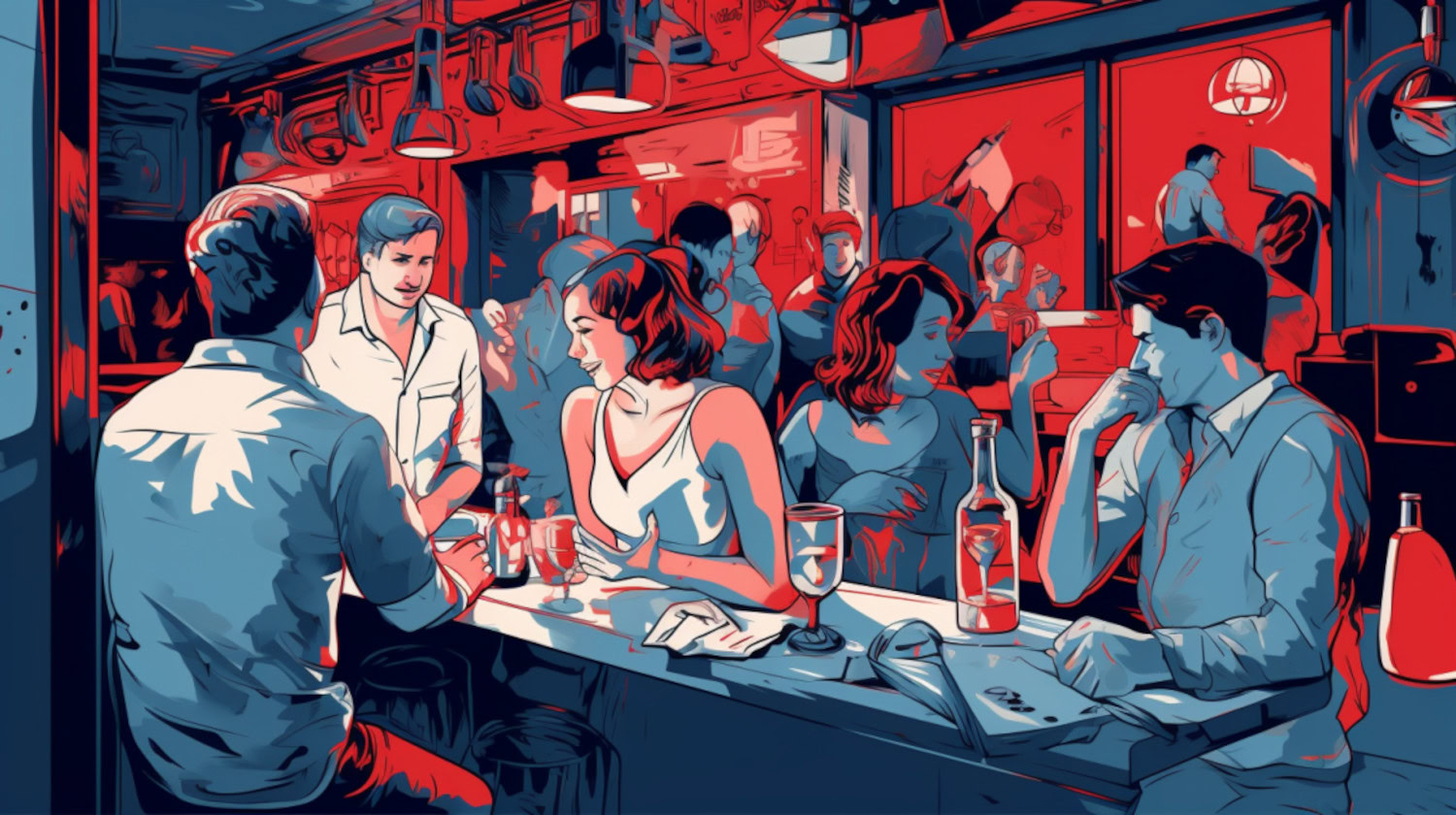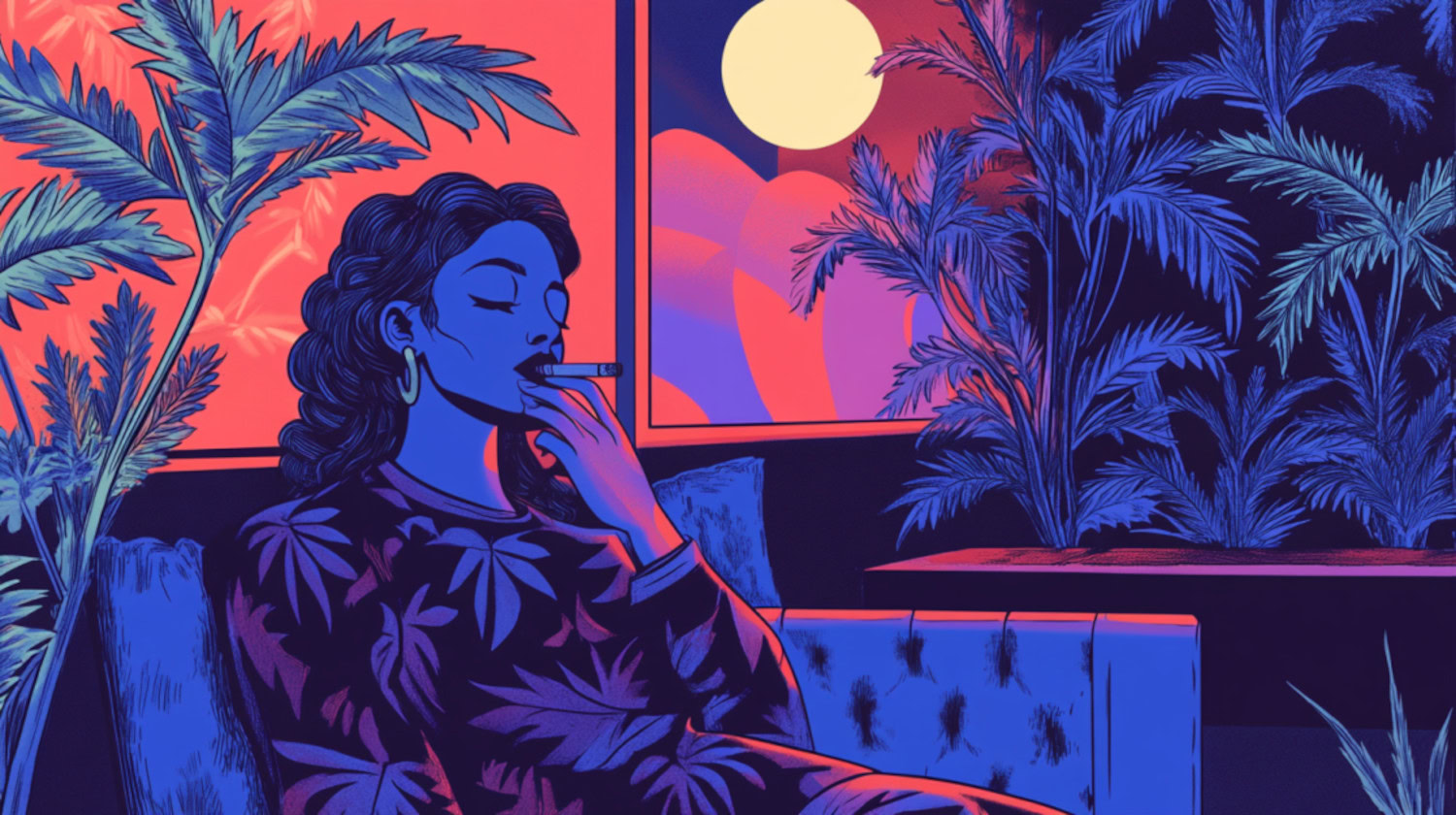In This Article
- How Socialization Can Help
- Where Can Cannabis Patients Socialize?
- Cannabis Clubs & Lounges
- Private Events and Meetups
- Online Communities
- Why Some Aren’t Social
- Public Stigma
- Employment and Other Life Concerns
- Legal Risks
- Navigating Stigmas
- How to Be Considerate of Others While Being Social
- Location & Ventilation
- Mindful Dosing
- Consent and Courtesy
- References
Key Takeaways
- Through socialization, cannabis patients can find support, exchange valuable insights, and reduce social stigmas.
- Legal lounges and private events remain limited in most areas, leading patients to illegal gatherings and online communities.
- Respectful etiquette is appreciated and helps destigmatize lingering harmful stereotypes.
Cannabis’ history as a communal and ceremonial plant dates back to ancient groups worldwide. Often used in group settings, the plant has long played a role in various spiritual events and communal gatherings. The tradition continues today through events like smoke sessions, lounges, and even restaurants.
While social options gradually increase, not every patient feels ready to step out and discuss their medical cannabis use. With stigmas, legal repercussions, and often limited legal options still a concern, it isn’t always easy being a social cannabis patient or discussing cannabis use in public.
How Socialization Can Help

For medical patients, cannabis-friendly settings — online or in-person — can help play a part in their well-being. By participating, patients often find camaraderie, information, and support they might not receive elsewhere. In some cases, this support can reduce a person’s social anxiety around discussing their cannabis use in public. They can also learn how to identify trusted cannabis sources or find the best dispensaries for medical patients in the area.
Furthermore, analysis has found that patients benefit from seeing people like them using cannabis. Such experiences potentially reduce internalized shame or stigmas in select patients.1
While socialization may embolden, a lack of a social network is often detrimental. Select studies have found that decades-old lingering societal stigmas about medical cannabis use can lead to patients isolating. In some cases, stigmas have reportedly deterred patients from using cannabis as part of their treatment plan.2
Where Can Cannabis Patients Socialize?
Cannabis Clubs & Lounges
A cannabis social club or lounge allows members to consume on-site and connect. However, legalized lounges remain limited in the U.S. due to regulations. As legalization spreads, more lounges should emerge. But for now, options remain scant.
Private Events and Meetups
With sanctioned public venues limited, many patients gather at private events or meetups, legal and otherwise. These gatherings include buyer’s markets, infused dinners, fundraisers, or other unique settings. Still, legal concerns loom for many events, with risks of fines and raids possible.
Online Communities
Cannabis has always been an in-person sort of community. But, online platforms like Reddit, Discord, Instagram, and YouTube have taken socialization to digital levels. These platforms help consumers connect even if the scene isn’t strong in their local community. Digital communities can help patients with everything from strain reviews to finding support. With local online groups, there is even a chance to meet the digital group in real life.
Why Some Aren’t Social

Cannabis acceptance has no doubt progressed in recent years. Still, many of the pressures of yesteryear remain.
Despite it being clear that humans tend to thrive on socialization, it isn’t always that easy for a medical cannabis patient to be out in the open about their use. Even if someone wants to discuss medical cannabis in a social setting, one or more significant roadblocks may hold them back.
Public Stigma
Stereotypes and negative sentiments run deep in some parts of the country. Even though many now see cannabis as acceptable, others continue to buy into old-era propaganda tactics. Such stigmatization can turn patients away from speaking freely and openly about their use.1
Employment and Other Life Concerns
Federal employers and some private sector companies continue to screen for cannabis. If a person is found to have THC in their sample, they may lose their job or not receive an employment offer.
Similar concerns exist for a range of cannabis consumers, spanning gun rights to custody cases. With much to lose, many either avoid using medical cannabis or keep it private, sometimes even from physicians.
Legal Risks
Legalization lessened the concern of fines and jail time for anyone caught in possession or consuming cannabis. But, with it still illegal on the federal level and several states prohibiting access in some form or another, millions remain at risk of criminal cannabis charges.
Enforcement does appear to be lax in most parts of the country. Still, the risk no doubt has consumers keeping quiet while likely deterring others from partaking. That stance may be justified when considering that U.S. law enforcement made more than 217,000 cannabis-related arrests in 2023.
Even if a consumer chooses to discuss their medical cannabis use in public, they should remember the legal risks. These risks remain, especially when crossing state lines and entering international waters. Be sure to brush up on all auto, airline, and cruise-related laws before traveling.
Navigating Stigmas

Countless patients hesitate to socialize due to fear of judgment and/or severe repercussions. Be it backlash from landlords, employers, or even loved ones, studies show that such pressure can lead some patients to withdraw from social situations.1
While not always ideal, some successful tactics when encountering cannabis stigmas include:
- Selective Disclosure: Only share details about medical use with trusted individuals.
- Re-frame the Conversation: Emphasize how cannabis positively impacts health. Personal anecdotes usually serve as a strong selling point.
- Educate Others: Cite reliable sources to address misconceptions and explain how cannabis has been found to treat or alleviate certain conditions and symptoms.
How to Be Considerate of Others While Being Social

Being considerate is essential to any welcoming space. With cannabis laws and stigmas still uncertain to advance, consumers must enjoy the plant without infringing on anyone nearby.3 Some of the best practices to keep in mind when consuming in public or social settings include:
Location & Ventilation
To limit smoke and aroma buildup, choose outdoor areas or well-ventilated rooms. If you consume indoors, consider odorless or reduced-odor options, like edibles and concentrated oils. When in public, avoid smoking in confined spaces where secondhand smoke could affect passersby.
Mindful Dosing
Overconsumption can turn an ideal get-together into an uncomfortable experience in no time. When socializing with new people or consuming in public, keep the dosage low enough that the ideal outcome is achieved without becoming overly intoxicated.
Consent and Courtesy
Some people and places don’t want to have smoke or cannabis of any kind. If it’s not your event or home, it’s always best to be respectful of people’s wishes. Always ask before lighting up indoors. When outside, first scan the area to ensure that no one who may potentially consume secondhand smoke is nearby.
References
- Satterlund TD, Lee JP, Moore RS. Stigma among California's Medical Marijuana Patients. J Psychoactive Drugs. 2015;47(1):10-17. doi:10.1080/02791072.2014.991858 ↩︎
- Hulaihel A, Gliksberg O, Feingold D, et al. Medical cannabis and stigma: A qualitative study with patients living with chronic pain. Journal of Clinical Nursing. 2022;32(7-8):1103-1114. doi:https://doi.org/10.1111/jocn.16340) ↩︎
- Fischer B, Robinson T, Bullen C, et al. Lower-Risk Cannabis Use Guidelines (LRCUG) for reducing health harms from non-medical cannabis use: A comprehensive evidence and recommendations update. International Journal of Drug Policy. 2022;99:103381. doi:https://doi.org/10.1016/j.drugpo.2021.103381 ↩︎
The information in this article and any included images or charts are for educational purposes only. This information is neither a substitute for, nor does it replace, professional legal advice or medical advice, diagnosis, or treatment. If you have any concerns or questions about laws, regulations, or your health, you should always consult with an attorney, physician or other licensed professional.




